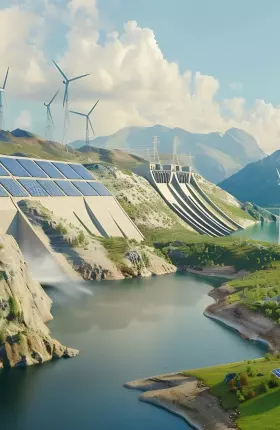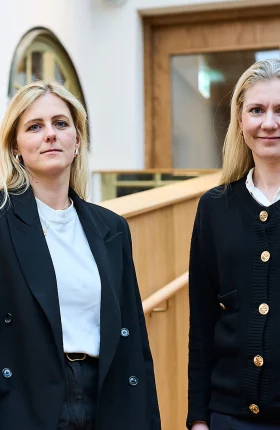The Nordic countries, and Finland in particular, have the resources and capabilities to lead in the green transition. To future-proof themselves, companies worldwide must adapt their business models and find new ways to create economic value within planetary boundaries. This imperative to transform will trigger demand for new, greener solutions. By tapping into green growth – often catalyzed by regulation – Finnish companies can expand into new businesses and emerge as winners from the green transition.
If the cards are all played right, the Finnish export potential for green solutions can reach 85-100 billion euros by 2035. The market for green solutions is particularly strong in Europe, as EU regulation is triggering demand in industries that need to decarbonize their value chains.
Finland's Resources and Capabilities
Finland has a head start in meeting the global demand for green solutions. Forests cover three-quarters of the country, providing a bio-based alternative for many emission-intensive and non-degradable materials. It is the only EU country with all the minerals needed for battery production. 90 percent of the country's power generation is already carbon neutral, with a rapidly increasing share of renewable wind power capacity. Moreover, Finland's industrial export sectors' competitiveness already relies on the process- and resource efficiency and digitalization – key levers needed for decarbonizing global value chains. The country's workforce is also highly educated and digitally skilled with many scientists and engineers proportionate to the population.
These unique advantages position Finland as a key player in meeting the global demand for green solutions. However, companies need to actively pursue this leadership position. As Antti Herlin, chair of elevator maker Kone, pointed out, "Finland's main export sectors—machinery, forest products, metals, and chemicals—will remain the same, but they need to transform within to remain competitive in the green transition."
Timing the Transformation
Management typically focuses on short-term objectives and securing profitability for the current financial year. More than ever, companies must simultaneously play the short-, mid-, and long-term game. Timing is crucial when it comes to investing in the future.
Given the new EU environmental regulation, the last five years have been a poor proxy for future development. Instead, Finnish companies must envision how their customers' industries will become sustainable and articulate how they will play a role in their customers' decarbonization journeys. A winning strategy will likely involve transforming the core business gradually while investing in new businesses with a growing role in the future. The green transition is coming faster than most leaders expected.
Finnish companies must seek step-change innovation and attract outside capital to finance green investments. Juha: "There will be substantial climate-aligned investments globally, and it is important to attract some of these investments to Finland. Also, Finland needs to shift its R&D funding increasingly to disruptive green technologies – incremental improvements in productivity will not be enough.", underlines Juha Majanen, permanent state secretary in the Ministry of Finance.
Decarbonizing global value chains will not be enough; the long-term imperative for companies is to redesign their business models so that economic value is created without harming critical ecosystems. We need to consider all planetary boundaries, including land and water use, resource exploitation, pollution, and biodiversity. Companies should stress test their businesses against the planetary boundaries and create strategies that reduce their pressure on nature. A new framework, the Science-Based Targets for Nature, can help develop these strategies. To reduce pressure on nature, companies will likely need to move from linear to circular business models. In addition, increasing the utilization rate and longevity of goods and assets are major levers to reduce demand for raw materials.
In the coming decades, global value chains need to be reinvented to become more resilient, less wasteful, and resource-dependent than today. This green transition is one of the biggest drivers of change for industries, and it offers abundant opportunities to tap into new green markets. Finnish companies have several competitive advantages that enable them to win in the green transition if they just play their cards right.









